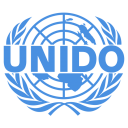The First National Strategic and Action Plan on Clean and Modern Cooking for Sao Tomé and Príncipe
In Sao Tome and Principe (STP), most of the population lacks access to sustainable cooking services and relies heavily on firewood and charcoal. In 2019, indoor air pollution from these solid fuels was identified as the third leading cause of death and disability in the country. The time spent collecting fuel, often by women and girls, results in lost education and income opportunities and increases the risk of injury, attacks, and gender-based violence. Additionally, the unsustainable extraction of firewood and charcoal contributes to deforestation, erosion, and desertification, further exacerbating climate change through greenhouse gas emissions.
To address these critical issues, the National Renewable Energy Action Plan (NREAP) and the National Energy Efficiency Action Plan (NEEAP) have been developed with a transformative vision towards clean cooking solutions that minimize health and environmental impacts. The objective is to achieve 100% access to energy-efficient stoves by 2030, complementing the goal of universal electricity access by the same year. Despite these goals, in STP, the cooking sector had not received adequate attention until recently, with minimal international support for its transformation.
In this context, and within the framework of the Green Climate Fund Readiness project “Creating Institutional Capacity for an Investment Program in Renewable Energy and Energy Efficiency for Sao Tome and Principe,” which contributes to the nation’s Vision 2030 aimed at building the country we need for the future, the United Nations Industrial Development Organization (UNIDO), in collaboration with the General Directorate of Natural Resources and Energy (DGRNE) of the Ministry of Infrastructure and Natural Resources (MIRN) and the Designated National Authority (NDA) of the Ministry of Planning, Finance, and Blue Economy (MPFEA), with the assistance of a consultancy service from the Polytechnic University of Madrid (UPM). This consultancy aimed to conduct a baseline assessment, develop a clean cooking strategy, and create a project concept for its implementation. These documents are intended to increase international attention and support for the transition to clean and modern cooking solutions in STP, providing the DGRNE with a comprehensive reference guide.
Therefore, the National Action Plan and Strategy for Clean and Modern Cooking (PANECLM) has been recently published. This plan outlines the strategies and public policies needed to promote the adoption of clean and modern cooking products and services, replacing traditional methods. This strategy is based on a stacking approach, which implies that the way to move to cleaner and more efficient systems is gradual, incorporating new solutions within the same household without immediately or completely abandoning the old ones.
In the short term, the plan advocates for high-efficiency biomass stoves for rural populations reliant on firewood and promotes sustainable charcoal as a complementary option. For the short and medium term, it recommends the use of LPG among urban and higher-income rural populations while restricting kerosene use for domestic purposes. In the medium and long term, the plan encourages the adoption of electricity as an alternative, especially in urban areas with reliable electricity supply and in rural areas through distributed renewable generation
The PANECLM was presented and validated with key stakeholders during a workshop held in Sao Tomé on February 7-8, 2024. The results were shared in an online learning exchange session on April 30, in collaboration with the Global Network of Regional Sustainable Energy Centers (GN-SEC) , serving as a model for other Portuguese-speaking countries.
This quarter, clean cooking took centre stage also at the international level with one of the highest-profile meetings of international leaders and experts to discuss Africa’s transition to clean cooking, held in Paris on 14 May. Co-chaired by leaders from the governments of Tanzania and Norway, the African Development Bank, and the International Energy Agency, the summit brought together governments, development institutions, and companies from 60 countries. The aim was to make 2024 a pivotal year for addressing clean cooking, an issue long neglected. The summit successfully mobilized $2.2 billion in financial resources to accelerate the global achievement of Sustainable Development Goal 7.1, which aims to ensure universal access to modern, reliable, and affordable energy services (electricity and cooking) by 2030.
For further information, please, contact:
Martin Lugmayr, Industrial Development Expert and GNSEC Coordinator: M.GAILLON@unido.org
Andrea Eras Almeida, Renewable Energy Project Expert: A.ERASALMEIDA@unido.org
Gabriel Maquengo, National Project Coordinator: G.LIMAMAQUENGO@unido.org
Geisel Carvalho de Menezes, National Young Climate Professional: G.CARVALHODEMENEZES@unido.org





